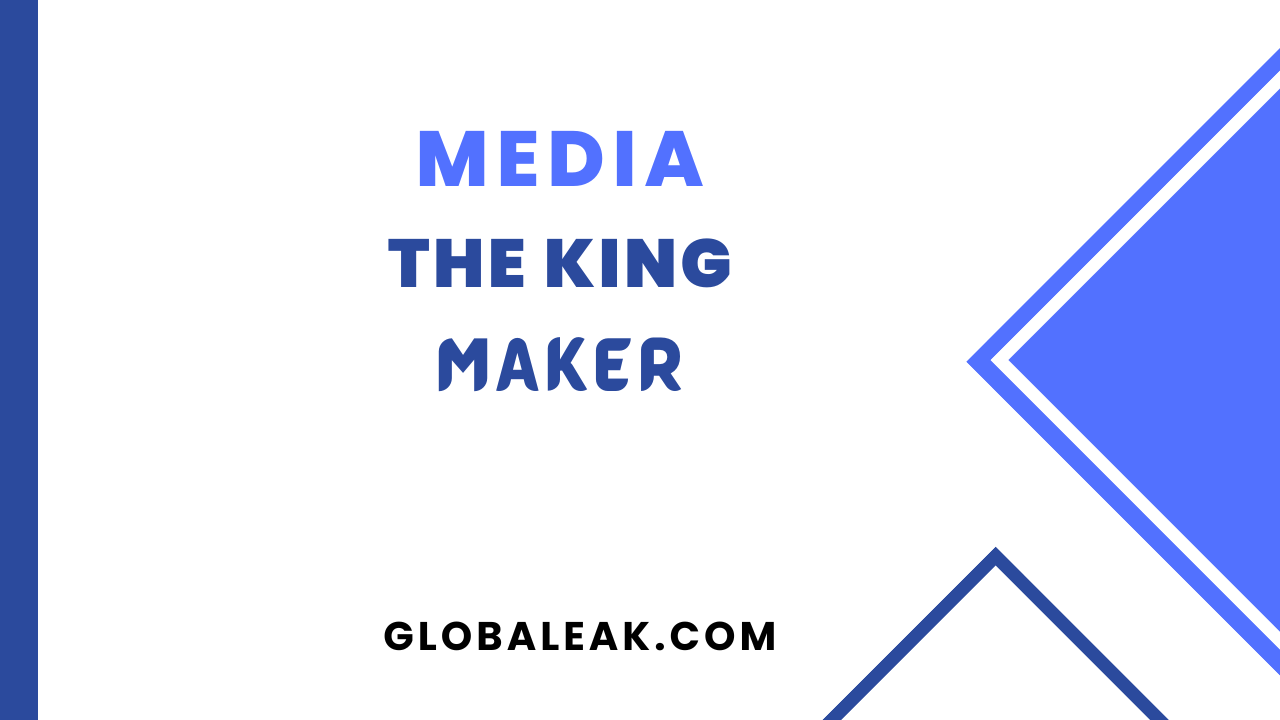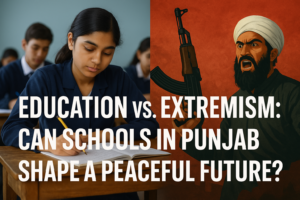Introduction
Media, in its various forms, has become a powerful force in the political landscape of many countries. Media has become a powerful tool for influencing public opinion and shaping events. The ability of media to shape public opinion and influence political decision-making has led some to refer to it as the “king maker.” The media has the power to make or break political careers and has a significant impact on the outcome of elections. From the Arab Spring to the #MeToo movement, the world has seen how platforms such as Twitter and YouTube can be used to spread messages, build awareness and mobilize people around the world.
Forms of Medial; Strengths and Weaknesses
Media can take many forms, including print, radio, television, and social media. Each form has its strengths and weaknesses, but they all have the potential to shape public opinion. For example, print media, such as newspapers and magazines, can provide an in-depth analysis of political issues and candidates. They can also publish investigative reports that expose corruption or wrongdoing by political figures. Radio and television have a wider reach and can provide more immediate coverage of breaking news and events. Social media has become an increasingly important platform for political communication, providing candidates and parties with a direct line of communication with their supporters.
Power of Media
Media has the potential to be a kingmaker as it determines which ideas and stories are heard and which are ignored. This power carries with it a tremendous responsibility, as media can shape who is seen as a leader, who is a villain, and who is an expert.
The power of media as a king maker can be seen in its ability to influence public opinion. The media can shape how people think about political issues and candidates and can create a narrative that favors one candidate or party over another. The media can also frame issues in a way that favors one perspective over another or highlight certain issues while downplaying others.
In addition, the media also has the power to hold political leaders accountable. Investigative journalism and reporting can expose corruption, abuse of power, and other forms of wrongdoing by political figures. This can lead to the resignation or removal of political leaders, and can also influence public opinion and political decision-making.
Concerns About Media
The media’s ability to shape public opinion and influence political decision-making has led to concerns about its objectivity and neutrality. Some argue that the media is biased in favor of certain political parties or candidates and that this bias can influence the outcome of elections. Others argue that the media is increasingly driven by profit and ratings, which can lead to sensationalism and a lack of substantive coverage of political issues.
Inferences About Media
To understand how media can be used to drive positive change, it is important to consider the implications of the media landscape. The prevalence of “fake news” and the proliferation of echo chambers can make it difficult to discern the truth. We must be mindful of the role of media in amplifying certain stories and silencing others, and how this can lead to a skewed perception of reality.
Conclusion
The media remains a powerful force in the political landscape. It can shape public opinion, hold political leaders accountable, and influence political decision-making. As such, the media need to maintain high standards of objectivity, neutrality, and journalistic integrity to ensure that it serves as an informed and responsible king maker, rather than a tool of political manipulation.
At the same time, we must recognize the potential of media to be a force for good. By carefully considering the platforms we use, the sources we rely on, and the stories we share, we can make sure that media is used to tell the stories that need to be heard and to create positive change in our society.
Read also:War on Terror
📍 English Language Educator | Blogger & Content Strategist | 7+ Years in Educational Blogging
Nosheen Bashir is a dedicated English teacher and experienced blogger with over seven years of expertise in content creation and educational writing. Passionate about language, literature, and effective communication, she combines her teaching experience with blogging skills to create insightful, research-backed content that helps learners and educators alike.
🔹 Expertise & Achievements:
✔ English Language Education: A skilled educator with years of experience in teaching English grammar, literature, and communication skills to students of varying levels.
✔ Educational Blogging: Running a successful blog for 7+ years, delivering well-structured, engaging content on language learning, writing techniques, and academic success.
✔ SEO & Content Strategy: Specializes in creating high-ranking, authoritative articles that follow Google’s EEAT principles, ensuring content that is both informative and search-friendly.
✔ Student-Centric Approach: Committed to making English easier, engaging, and accessible, helping readers and students improve their language proficiency.
🚀 With a passion for teaching and writing, Nosheen Bashir is dedicated to crafting educational content that empowers students, teachers, and language enthusiasts worldwide.



